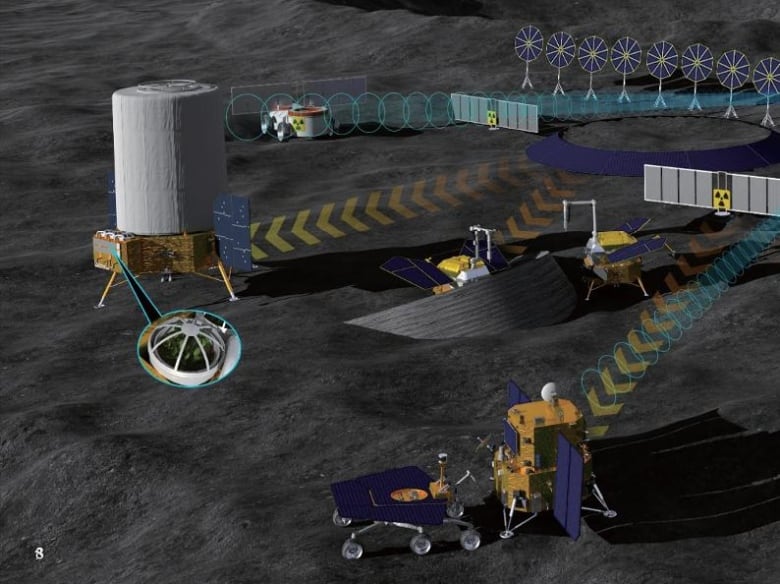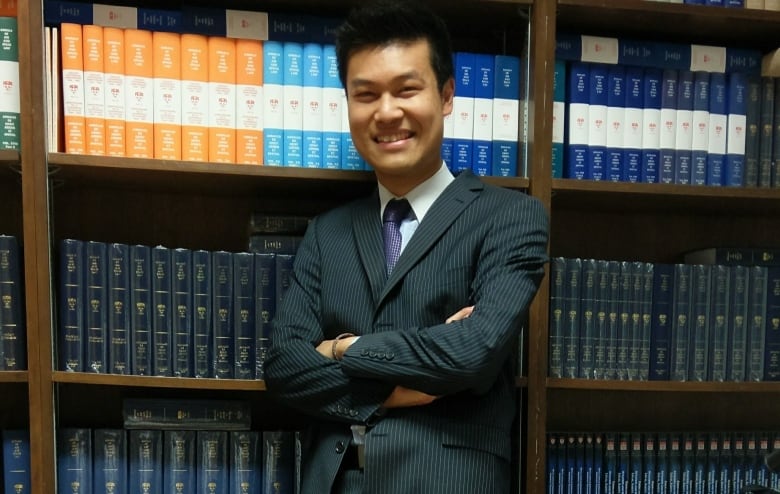Mining the moon may sound like an thought that belongs in a science fiction novel, however it is liable to be a part of actuality inside the not-so-distant future. that is made it a scorching matter of debate amongst residence legal professionals — sure, there are residence legal professionals — on Earth.
When Michelle Hanlon, co-director of the Air and residence legal guidelines Program on the college of Mississippi, tells of us what she does for a residing, she says most of us are confused.
“most of us suppose i am an exact property lawyer — what variety of residence do you promote?” she acknowledged, laughing. however genuinely, Hanlon is an professional inside the legal guidelines governing outer residence.
There are a quantity of worldwide agreements governing residence, collectively with The Outer residence Treaty, which was drafted in the course of the chilly battle and signed by greater than one hundred international places collectively with america, China and Russia.
That treaty, which states “outer residence, collectively with the moon and utterly different celestial our bodies, simply isn’t topic to nationwide appropriation by declare of sovereignty,” is what prevents international places from swooping in and declaring possession over the moon.

“you can not plant a flag wherever in residence and say this now belongs to america, this now belongs to Russia, this now belongs to China,” Hanlon acknowledged.
however as regards to mining the moon for assets, issues get extra difficult. authorized specialists are engaged on teasing out precisely how that treaty applies when nations — or private corporations engaged on behalf of nations — start harvesting assets from the moon or asteroids.
“By constructing a mining operation, some would argue … you are actually claiming sovereignty by one other means,” Hanlon acknowledged. “we have to be taught to do one factor in residence that we have not but realized discover out how to do on Earth. and that is: be acutely conscious and respectful of every utterly different.”
which will likely be put to the confirm inside the following couple of years, as foremost residence-faring nations race to decide bases on the moon.
NASA’s Artemis mission, which the Canadian residence agency is contributing to, hopes to ship people to the moon by 2030.
This time round, the plan simply isn’t solely to go to however to hold for good. that options constructing a base camp on the lunar south pole, as properly as to a lunar gateway — a spaceship which will orbit the moon.
China and Russia have their very personal lunar base in enchancment, a collaboration between the two international places referred to as the worldwide Lunar evaluation Station.
with a view to hold away from hauling assets from Earth to maintain these habitats, residence functions are hoping to reap assets from the moon’s icy floor. that is consists of water — important for human life and a supply for gas when damaged down into hydrogen and oxygen — as properly as to unusual earth minerals and helium-three, a doable supply of power.
WATCH | NASA is asking for inventors to assist decide moon mining:
NASA has chosen 4 corporations to “collect residence assets” on its behalf and launched a contest for the whole public to design, construct and confirm prototypes to excavate icy moon grime.
“The moon is pretty massive and the moon itself simply isn’t going to get crowded, however the areas the place all of us know there’s water are going to get crowded,” Hanlon acknowledged.
Not the Wild West
Given the observe report of mining on Earth, collectively with the human toll and environmental damages, there are considerations the identical errors will likely be repeated when people develop to be a very residence-faring species.
“I do fear at instances,” acknowledged Kuan-Wei Chen, a authorized professional in residence legal guidelines and the supervisor director of McGill college’s Centre for evaluation in Air and residence legal guidelines.
“we do not want to have as quickly as extra the repeat of historic previous, when international places and industrial operators go to what they name a ‘new world’ to start out stopping and fascinating in battle over assets.”
that is why, he says, its as a lot as teachers and governments to emphasize that there are legal guidelines governing residence.
“residence simply isn’t a authorized vacuum. it is not the Wild West. It mustn’t be the Wild West.”

to assist information international places by these current frameworks, Chen labored with a crew at McGill college as properly as to a coalition of worldwide specialists to current a handbook on worldwide legal guidelines in outer residence.
Given current geopolitical tensions, collectively with Russia saying it can depart the worldwide residence Station and construct its personal, Chen says its greater to work with the treaties that exist already pretty than try to get international places conform to a mannequin new one.
however the outer residence treaty is open to interpretation as regards to mining.
“The legal guidelines says very clearly it is not allowed to relevant the moon. Now, does that imply you are not allowed to extract and use your assets which may be found inside the soil or the subsoil of the moon? that is not clear,” Chen acknowledged.
typically agreed: should you mine it, you personal it
NASA launched the Artemis Accords in 2020, as what it describes as establishing “a protected and clear environment which facilitates exploration, science, and industrial actions for all of humanity to take pleasure in.”
In a press launch despatched to CBC, a spokesperson acknowledged that “extraction of residence assets does not inherently signify nationwide appropriation.”
however Russia and China have not signed the U.S.-led accords, and specialists say they’re unlikely to take movement.
“Russia and China think about very strongly that the one place you presumably may make residence legal guidelines is contained in the United Nations and additionally they see the Artemis Accords as making an try to bypass that,” Hanlon acknowledged.
“i suppose the US would say we’re not circumventing, we’re simply bounce starting.”
Regardless, Hanlon acknowledged the Artemis Accords’ interpretation of the Outer residence Treaty as a end result of it applies to mining are according to what has been typically accepted. She says that takeway — which China and Russia have by no means disagreed with — may even be summed up as “should you mine it, you personal it.”
As nations inch nearer to establishing a presence on the moon and past, Hanlon and Chen agree there should be extra consciousness about how worldwide legal guidelines applies.
The hope is that nations will respect the current treaties and uncover an reply to reap assets equitably and sustainably.
in the event that they do not, or if battle arises, the worldwide group should rely upon diplomatic pressures — or there’s the potential to level to the worldwide court docket of Justice.
“we have to make sure that that no matter we do in outer residence and in addition on the moon will not have a detrimental affect on on us proper now, however in addition the future expertise,” Chen acknowledged.
“These worldwide legal guidelines … have been drafted with these guiding guidelines of guaranteeing that residence is a peaceable area, and guaranteeing that there is a sustainable future for the strategy whereby forward for humankind in outer residence, on the moon and on utterly different planets.”




0 Comments